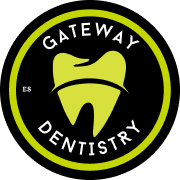

The Signs And Symptoms Of Tooth Sensitivity
To get right to the point, tooth pain happens when the nerves in your teeth become irritated. Normally, our teeth are covered in a protective layer of enamel. On the inside, there is a layer of material called dentin and then the pulp at the core of the tooth which is filled with connective tissue, blood vessels and the nerve of the tooth. When enamel thins or is breached, exposing the dentin, the nerve loses its protection. Tooth sensitivity often results from practices or conditions that erode or damage tooth enamel.
The many ways that tooth enamel can become damaged:
- Drinking or eating acidic foods and beverages– especially before bed.
- Skipping routine tooth care including flossing!
- Brushing aggressively or using a hard toothbrush.
- Attempting to use professional dental tools at home.
- Health issues (like bulimia or acid reflux) which expose teeth to stomach acid.
- Untreated gum disease and gum recession.
- Damaged, cracked or chipped teeth.
- Dental cavities (especially if left untreated).
- Using tobacco products, cannabis products or vaping.
- Grinding or clenching your teeth.
- Overuse of some teeth whitening products.
What Can You Do About Sensitive Teeth?
The initial and crucial step after experiencing dental pain or discomfort is to visit the dentist. This visit can help identify any underlying causes of your tooth pain and suggest treatments for any damage or decay found. A formal diagnosis from the dentist can give you confidence that you’re on the right path. Let’s outline the entire process:
Figure out the underlying cause
We won’t make any assumptions. During your examination, you’ll be asked to describe the sensitivity and its frequency. You may need new X-rays, and the dentist will thoroughly examine your teeth and gums. Additional diagnostic tests, such as the tap or cold test, may also be helpful in diagnosing your condition.
Treatment in the office
Damaged or decayed teeth can be treated with various restorative options, ranging from fillings to more complex procedures like crowns. For worn enamel, home treatments may be sufficient, but in-office treatments are also available. We’ll discuss all your options with you, and the final decision will be yours.
Personalized Advice
Given the various potential causes of tooth sensitivity, a thorough dental exam can pinpoint the specific issue. Following this, we can provide personalized tips to strengthen your enamel at home and prevent future tooth decay.
Contact us today
to schedule an initial consultation & exam.
Your consultation will include an examination of everything from your teeth, gums and soft tissues to the shape and condition of your bite. Generally, we want to see how your whole mouth looks and functions. Before we plan your treatment we want to know everything about the health and aesthetic of your smile, and, most importantly, what you want to achieve so we can help you get there.
Frequently Asked Questions
Replace your toothbrush with one that has soft bristles. Brush twice daily using desensitizing toothpaste, and gently clean along the gum-line. Remember to floss and rinse with a fluoridated mouthwash. Avoid acidic and sugary foods and drinks, especially before bed, such as coffee, soda, wine, and fruit juice. If you clench or grind your teeth, try mindfulness or relaxation techniques to give your jaw a break. To permanently address sensitive teeth, a dental visit is necessary to determine the underlying cause definitively.
Enhancing your at-home dental hygiene can sometimes alleviate tooth sensitivity. When your enamel is maintained well enough to prevent further erosion and decay, it can actually regenerate. Fluoride treatment can greatly aid this process. However, dental pain is a natural sign that requires attention and investigation. If your enamel is extensively damaged or decayed, leading to exposure of the dentin, you may be at risk of infection or an abscess.
Stress can indirectly contribute to tooth sensitivity. Increased stress levels may lead to neglect of regular oral care, overindulgence in sugary or acidic foods, or increased smoking. Stress can also trigger teeth grinding or clenching, which may occur unconsciously, even during sleep.
Acids can erode enamel, while sweet and starchy foods can promote bacteria growth in the mouth, leading to acidic byproducts that also wear down enamel. Hard foods can pose a risk of enamel wear or tooth damage.
Examples of acidic foods include coffee, wine, alcohol, fruit juice, citrus fruits, soda, tomatoes, pickles, and vinegar. Sweet foods include chocolate, jams, jellies, caramel, sugar, hard candies, ice cream, and sugary drinks like juice and soda. Simple starches include donuts, cake, bread, potato chips, crackers, and cookies. Hard foods that can wear down enamel or damage teeth include chewing ice, hard candies, and foods with pits or hard kernels like popcorn, cherries, and olives.
It’s not necessary to avoid these foods entirely, but moderation is key. Additionally, maintain regular dental hygiene practices, especially before bedtime.
Keep in mind the importance of choosing beverages, snacks, and meals that are low in acidity and sugar. High-fiber foods are great for your teeth, as is dairy because it boosts saliva production. Aim for a balanced, nutritious diet rich in protein and calcium. Here are some tooth-friendly foods to enjoy:
– Drinks: Water, green tea, black tea.
– Snacks: Raisins and nuts, celery and carrot sticks, apple slices. Cheese.
– Main meals: Stir-fries, salads, wraps, meat and potatoes with a side of veggies.
– Desserts: Yogurt, ricotta and berries, applesauce.









